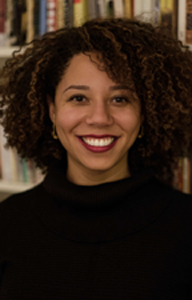
By Amanda Alexander
Right now, the “impossible” is happening.
In Detroit, with COVID-19 bursting the boundaries of our everyday catastrophes, we are seeing astounding — and overdue — changes in police and courtroom practices. This comes after thousands in the community have long demanded an end to aggressive police stops, driver’s license suspensions and court debt. Macomb County, near Detroit, just shelved plans for a new $300 million jail, citing the pandemic.
After years of unemployment, foreclosed homes, water shutoffs, shuttered schools, health clinic closures and jail expansion, many in Detroit’s Black majority have no illusions that our current system is doing anything but abandoning them to die. This calculated divestment has been relentless; after the outbreak of COVID-19, we learned that Wayne County officials had shifted $4 million in the 2019-2020 budget away from indigent health care and into new jail construction. And yet, in our neighborhoods, Detroit residents continue to prioritize each other. If we can do that here, despite decades of disinvestment, it is possible everywhere. This moment has shown us that changes can happen quickly, and that the “impossible” is simply a matter of priorities. It is about choosing — or being forced to choose — transformative solutions that dial into our collective humanity.Top of Form
- We are facing fundamental choices. We could choose racist fear and fascist, dystopian policing. We could continue to deem entire communities “criminal” and refill the jails just as swiftly as we have begun to empty them. Or we could recognize we cannot return to “business as usual” because evenbefore the pandemic, we had a state of emergency.
We are at a turning point now. It is time to learn from people who have been imagining new ways of being in community, and who have begun making monumental shifts.
At the Detroit Justice Center, we have asked more than a hundred young people what investments the city and county could make that would help them feel safe, valued, and empowered. Not one of them has said we need more police on the streets or more jails. Instead, they said we should build mental health spas, restorative justice mediation centers, and invest in public transit. Pay our teachers, fix our schools, build housing that is affordable and accessible for people with disabilities. These are not partisan political demands; in reality, they are the freedom dreams of young people who understand that broad swaths of people have been living in a state of emergency for decades.
In the past several years, more research has shown what so many communities have long known: jails produce poverty, job loss, evictions and homelessness, neighborhood instability, violence, trauma, debility, and death. Where incarceration rates are high, community social and economic well-being decline. And all of this misery costs us over $1.2 trillion each year (once the impact on other systems like foster care, housing, and the costs to families is taken into account, that’s the total cost of incarceration in this country). Fortunately, organizers have given us ideas for what we could build instead, and models for fighting for budgets that would create more just and equitable communities.
Over many years, Atlanta activists fought to reduce pretrial incarceration, end cash bail, eliminate city ordinances that criminalize poverty, and cut city contracts with Immigrant and Customs Enforcement. As the jail population shrank from over 1,000 to less than 100, they began to articulate a vision for how the city could reallocate the $32.5 million it was spending each year on the jail to meet communities’ needs. Now, Atlanta is set to close and repurpose the jail as a hub where residents can access health care, housing, quality child care and more.
Thankfully, it has been happening in cities all over the country. In New York City, Philadelphia, Milwaukee, Chicago, St. Louis, Seattle, Baton Rouge, Los Angeles, and elsewhere, people are demanding resources for health care and well-being. And they are winning. In Philadelphia, organizers with the “Close the Creek” campaign won a fight to shutter the city’s House of Corrections after pretrial reforms drove down Philly’s jail population by a third, from 8,082 to 5,394, in two years (2016-2018). This time last year, in Los Angeles County, after more than a decade of building power, the Justice LA campaign blocked the construction of two new jails — projects totaling over $3.5 billion — and went on to win an unprecedented commitment to public health care.
In this time of heightening crisis, we must be brave enough to use our full imaginations — and listen to those who have been dreaming of and fighting for just cities and communities for years. This is transformative work that can orient us toward a livable future for us all. If we are lucky, future generations —will thank us for it.
- Email Bottom of Form


Be the first to comment